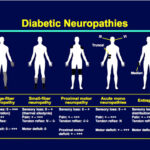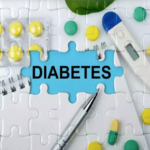This is a state of disillusion, frustration and a meek submission to diabetes which results in complete disregard to blood sugar level management. This is regarded as “freedom” from this confusing , frustrating and ever demanding condition. This is often seen many years after commencement of treatment.
This burnout is usually accompanied by varying levels of stress, anxiety, depression and labile emotions.
Precipitating factors:
- Scared of living with diabetes
- uncomfortable social situations- cannot swim, cannot party, cannot be out for late night meetings, cannot do this or that…
- overwhelmed and angry with diabetes
- feeling “alone”
- Feeling diabetes is taking too much of mental and physical energy
- Food deprivation
- concerns about the future- “Can I marry?”, “Will I be able to conceive or have a normal sexual life”, “How long can I live?”
The commonest modes of presenting can be:
- Self destructive behavior
- Eating or drinking whatever one wants knowing fully well it is not good for those with diabetes.
- Improper insulin shots or lying about medicine intake
- Improper maintenance of log books
- Fabricating glucometer readings
- Complications of diabetes can set in which in turn makes things worse to a point of suicidal behavior.
How to overcome a burnout?
- Stay focused and motivated. Do not attempt to be perfect- forgive those occasional high sugar levels if other readings are fine.
- Identify barriers to care of diabetes and resolve them.
- Edit negative thoughts
- Enroll into support groups
- Speak with a friend or health care professional
- Rethink exercise schedule
- take a break
- Laugh it off
A check list:
 Ask yourself whether you have done the following:
Ask yourself whether you have done the following:
• Enough medicines are there with you.
• Have you had the blood tests for cholesterol, liver, kidney, hemoglobin , urine for protein, sugar and 3 month average of sugar at least once in the past 6 months.
• Have you had a foot check , an eye check by eye doctor and a heart check such as having an ECHO cardiogram and Treadmill test in the past one year. There are instances when the treadmill could not be done due either being overweight or having knee or back problems.
• If an elderly male, have you had a PSA test done in the past one year ( this is a blood test for the prostate) Alternatively, you could meet with a Urologist, the specialist for these problems.
• If an elderly male or female, have you had the calcium, vitamin D levels checked in the past year and a bone mineral density which is a scan for the bones showing if they are prone for fractures. Vitamin D levels, if very low, will need a correction with medicines and a recheck done depending on the doctors advice.
• Women after the age of menopause or those with a strong family history of cancer of the breast should have a mammogram ( special X ray of the breast) done once yearly.
• Thyroid levels can be checked yearly once , unless on treatment.
• Distended abdomen, “gaseous feeling” and belching with a mild upper chest discomfort can sometimes be a marker for something sinister. Have a gastroscopy done to make sure there are no ulcers.
• All bleeding from below is not from ‘piles”. It may also be worthwhile to have a colonoscopy done.
• Have you been monitoring your progress and if you can see no improvement in either the sugar levels or weight, you must seriously reconsider your options. Please do not always find fault with the doctor or the medicines, the reason could be elsewhere.
• Have you got the glucometer serviced or checked out especially if more than an year old
• Have you shown the Insulin delivery devise to the doctor once a year if the refilled pens are being used. Faulty devices can lead to errors in dosing.
• All said and done, there is no point in doing an annual whole body scan to make sure all is well. There are so many things which may go unnoticed and also will be risk of too much of radiation.
• Please check the footwear daily for wearing out or foreign bodies. They can prevent serious mishaps later.
• Have you had an annual Flu vaccine? This will reduce the flu which occurs while traveling a lot
• For those above 65 years of age a pneumococcal vaccine is useful. This is to be taken just once in a lifetime.















